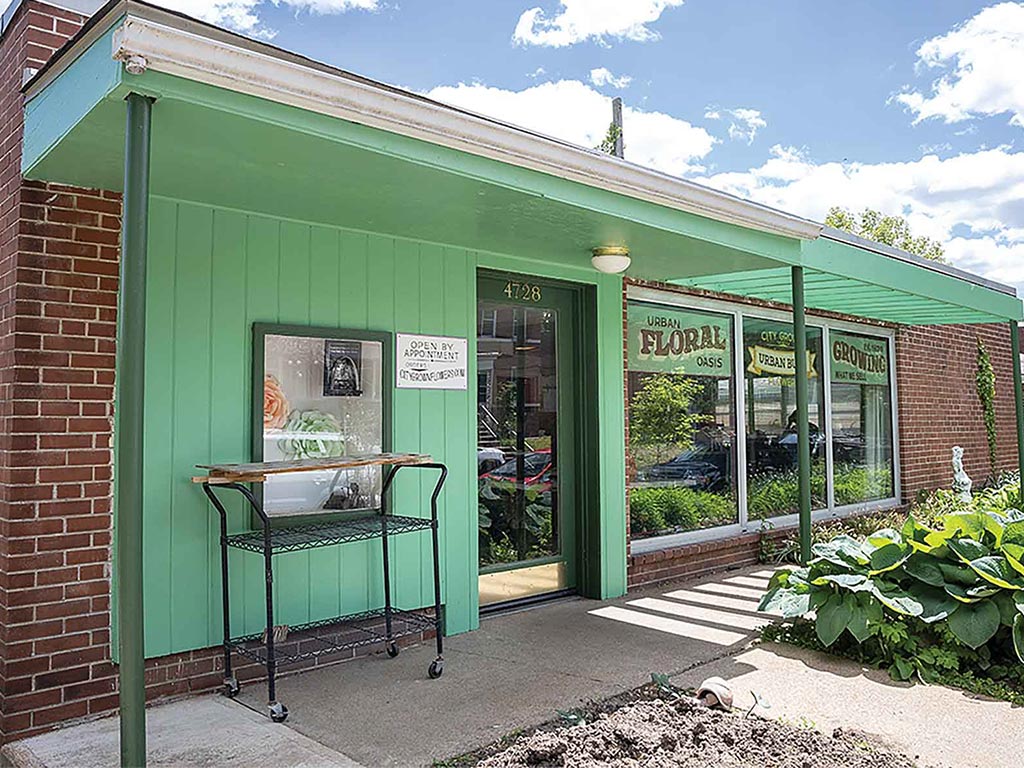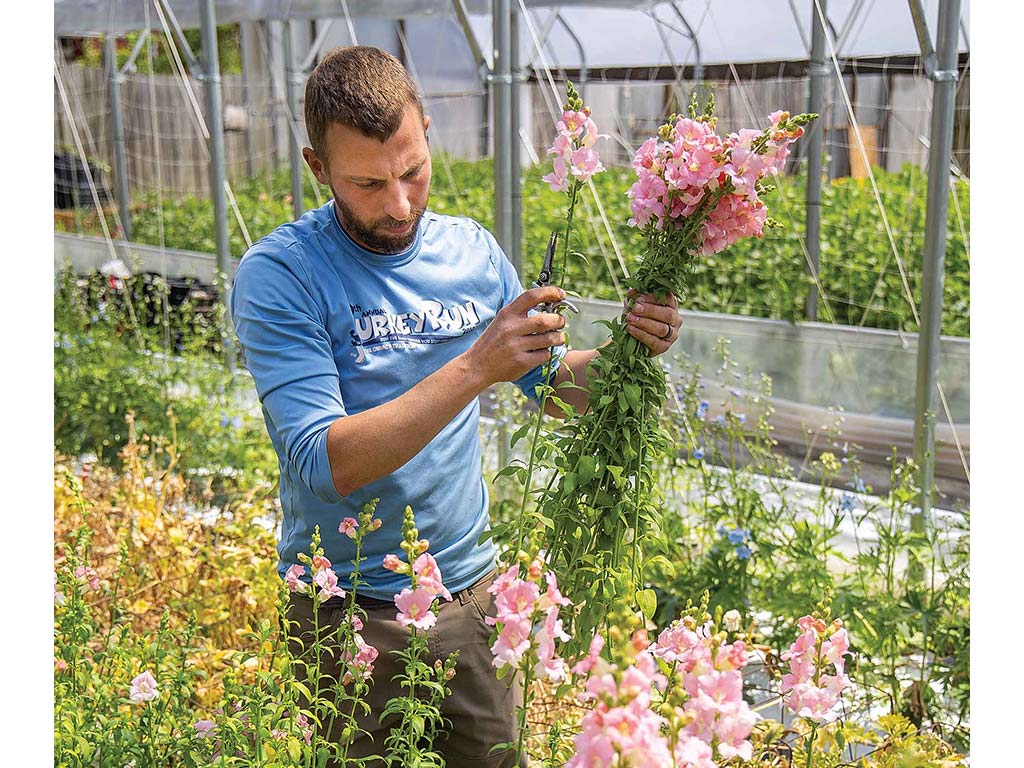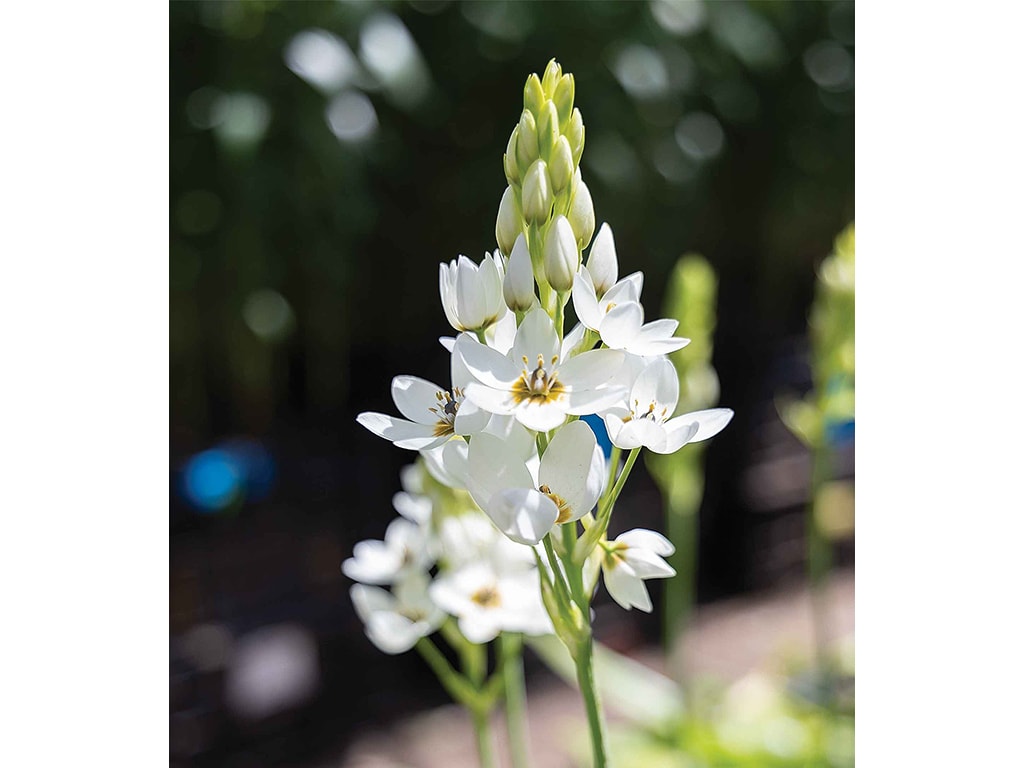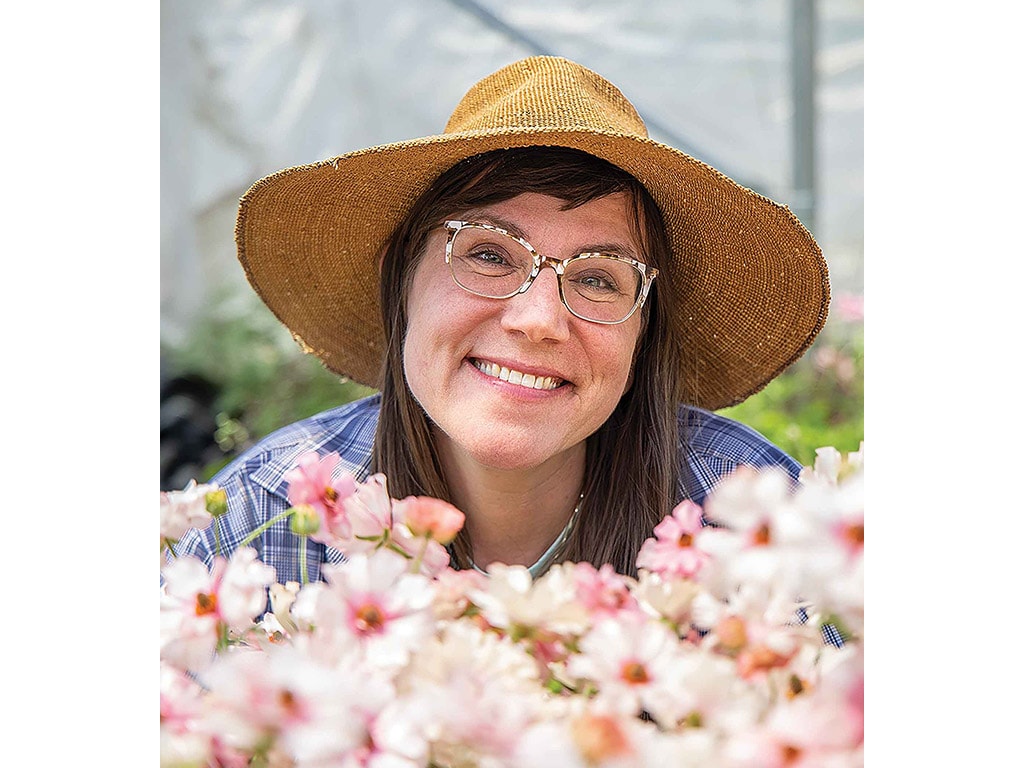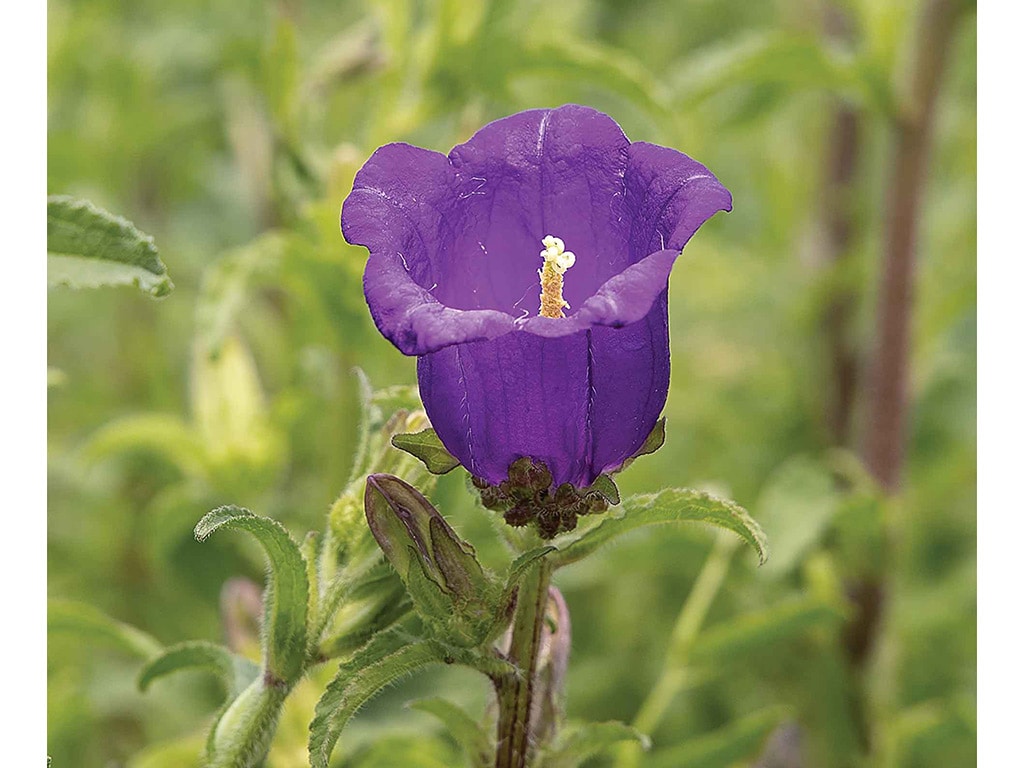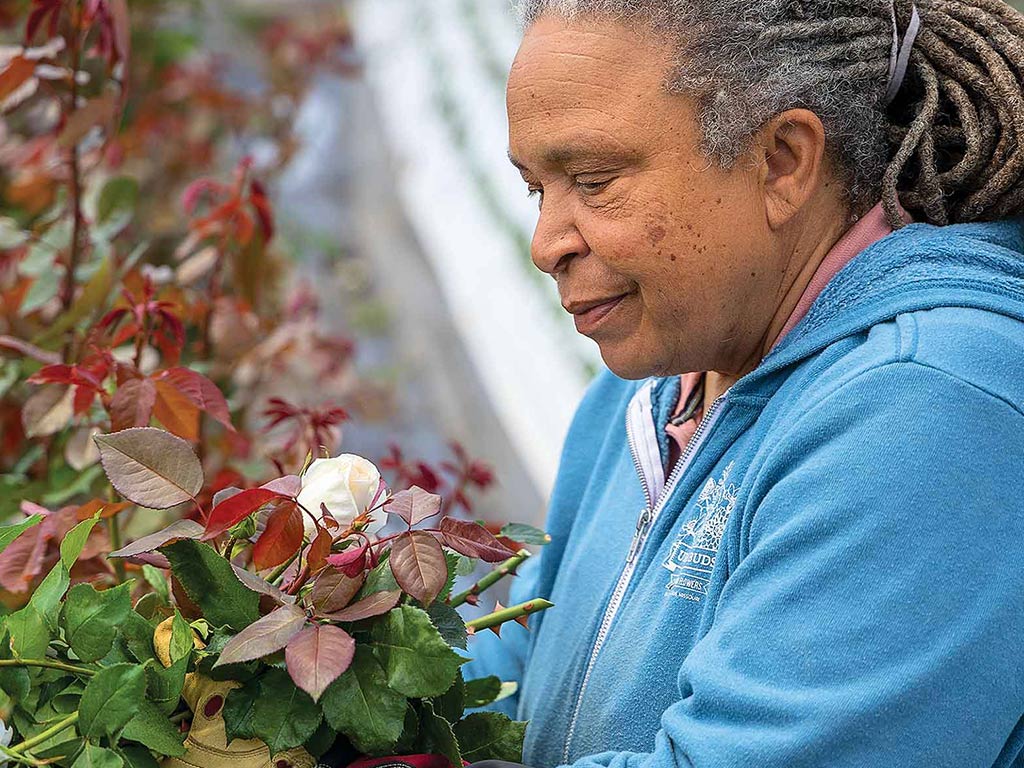Specialty / Niche September 01, 2023
Flowers with Flair
.
This duo uses flowers to bring smiles to customers.
Karen (Mimo) Davis' mother married a man who listened well.
"While they were dating, she mentioned she liked plants," Davis recalls. "When she moved from New York City to Jefferson City, Missouri, in 1989 to marry him, he bought a house that had a lean-to glass greenhouse and 132 rose bushes in the yard.
"Before she left on her honeymoon, she grabbed me by the hand, asked me to watch the flowers, and said, 'Don't let anything die,'" she adds.
Davis didn't.
"During that week, I went to nurseries and made a little booklet for her on how to care for each plant," she says. "I also fell in love with agriculture. After three months, I decided to move. I could buy a 15-acre farm in the middle of Missouri and still have money left over for what I was paying in rent for a studio apartment in New York City."
Davis made floral bouquets and grew cut flowers for farmers' markets as she earned a master's degree in horticulture. However, she eventually tired of toting flowers to sell at distant farmers' markets. About that time, she also met Miranda Duschack. When they found there was an urban flower farm in St. Louis for sale in 2012, they jumped on it.
Above. This storefront anchors the Urban Buds farm. Employee Andy Steinkamp harvests roses. One of the flowers Urban Buds sells is ornithogalum. Miranda Duschack savors the beauty of butterfly ranunculus. The bell-shaped campanula is grown by Urban Buds. Mimo Davis checks roses that will soon be harvested.
On paper, the property shone. "It was a flower farm that had been run by three generations of a family," says Davis.
In reality, the farm was a wreck, abandoned since the mid-1990s.
"It was a real mess," says Davis. "[Broken] glass crunched under our feet. There were no water or sewer lines, and the gas line was not working."
Still, the farm fit Davis' vision of growing fresh-cut flowers for urban customers through farmers' markets and direct sales.
"Flowers bring a lot of value, because they are with us throughout our lives," adds Duschack. "Flowers are with us when people fall in love, or when someone is born or someone dies or if there is a wedding."
Early on, cleaning and establishing infrastructure consumed the farm, named Urban Buds.
"We are debt averse and wanted to do the project without taking out mortgage and construction loans," says Duschack. "For the first five years, we took money from our jobs before the farm started paying for itself."
In 2017, Davis quit her day job to work full-time on the farm.
"Eleven years later, the farm is where I originally wanted it to be, which is very cool," says Davis.
Challenges exist. Approximately 80% of U.S. fresh-cut flowers are imported from countries not subject to the same labor and environmental laws as U.S.-grown flowers. Urban Buds cannot compete on a price basis in this market, Davis says.
So, Davis and Duschack aim at a different niche. Many of the 80 floral varieties they grow are unavailable on the imported market.
"We offer a wider variety of flowers, such as sweet peas, that are really fragrant and delicate," says Davis. "They would not survive the trip from a country like Ecuador."
They also grow flowers with no chemicals and minimal tillage and build organic matter through such tools as leaves and compost.
"Our customers can feel good about their purchase with our sustainable practices," says Duschack. "Our flowers also sell themselves. They are beautiful and unique and last a long time."
COVID-19 posed another hurdle. "In March 2020, weddings stopped," says Duschack. "Farmers' markets stopped. We had a truck full of flowers and no place to sell them, with payroll to meet and bills to pay.
"Fortunately, we had some young tech-savvy folks working for us who thought we could do 'Petals Off the Porch' contactless pickup," she adds. "Customers could purchase flowers online and pick them up at our farmstand in front of our building. Or, they could pay a delivery fee.
"We called it our COVID pivot," she says. "It forever changed our business model. During the pandemic, people were scared and lonely. Our 'Petals Off the Porch' customers left us notes saying our flowers got them through the pandemic." ‡
Read More
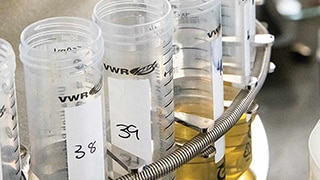
AGRICULTURE, AG TECH
Smoke and Substance
Breakthroughs promise answers to wine taint questions.

AGRICULTURE, FARM OPERATION
Test Results
Relentless pursuit of knowledge fuels Rendel Farms.


